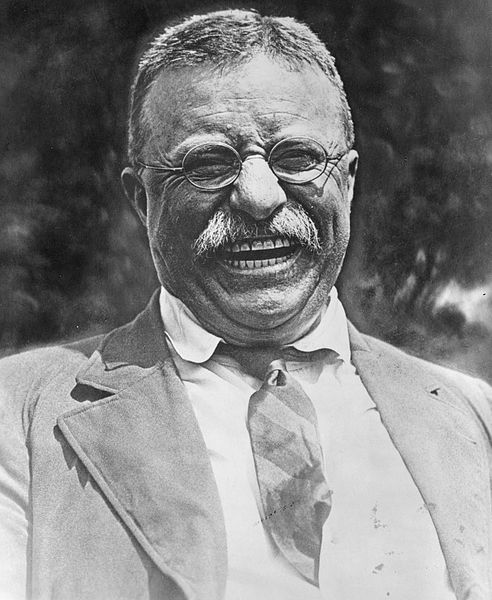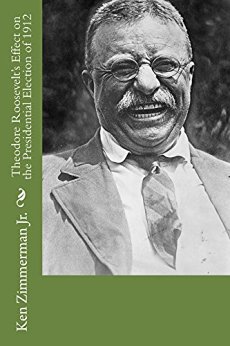Prelude to 1912 Presidential Election
Theodore Roosevelt made a fateful decision on Election Day 1904. He announced after being elected to the Presidency in his own right after ascending to the office upon the assassination of William McKinley that he would not run for another term in 1908. Roosevelt had served almost a full term before his election as McKinley was assassinated in September 1901. Roosevelt several weeks before his 43rd birthday was the youngest president in the country’s history. John F. Kennedy would be the youngest elected president in 1960 but Roosevelt was the youngest man to hold the office.
Many family and friends gasped when he made the announcement. At only 46 years old and at the height of his mental and physical powers, Theodore Roosevelt thoroughly enjoyed the presidency. Retiring at 50 years of age did not seem to fit with the proponent of “the Strenuous Life”. After winning 56 percent of the popular vote in 1904, he would most likely have been a shoe in to win in 1908. Аднак, Theodore Roosevelt was a historian. He felt strongly that a president should serve only two terms.
TR looked around for a successor and settled on William Howard Taft, his Secretary of War. Taft, who wanted to be Chief Justice of the Supreme Court and not the President of the United States, gave in to the desires of Roosevelt and Taft’s wife. Taft did not enjoy the presidency. He definitely did not enjoy the split with his former mentor, President Roosevelt, ў 1912. У рэшце рэшт, Taft realized his dream and was appointed Chief Justice by President Warren G. Harding.
To keep from getting pulled into any conflicts in national politics, Colonel Roosevelt as he wished to be known, took a year long safari in Africa with his second oldest son Kermit. Scribner and Sons paid Roosevelt for a book that would become African Game Trails. Roosevelt would make the majority of his living in retirement as a writer. Colonel Roosevelt supplemented his income through out his life through his books and magazine articles.
Upon his return to the United States, he was approached by several Progressives including his good friend and former Chief of the Forest Service, Gifford Pinchot. Pinchot did not fare well under Taft and his Secretary of the Interior Richard Ballinger. Taft dismissed Pinchot for what he viewed as insubordination and speaking publicly against administration policies.
They all reported that Taft had turned back the clock on many of the Progressive reforms. They complained to TR that his hand picked successor had allowed the conservative Stalwarts to take back control of the party. Roosevelt expressed sympathy but stated that he was no longer a national politician. He intended to stay retired as a writer for The Outlook magazine at his Oyster Bay home, Sagamore Hill.
Аднак, a number of political developments, misunderstandings and significant prodding from other Progressive Republicans led to TR changing his mind and “throwing his hat into the ring” for the Republican nomination. After he felt like dirty tricks had led to his defeat for the Republican nomination, Theodore Roosevelt entered the 1912 Presidential Election as a third party candidate. TR was the most prestigious minor party candidate in United States history. In the next section, I analyze the election and Theodore Roosevelt’s effect on the race for President of the United States in 1912.
You have just read the introduction to my newest e-book, Theodore Roosevelt’s Effect on the Presidential Election of 1912. If you are interested in further reading, you can order the book націснуўшы тут.
Вы можаце пакінуць каментар або задаць пытанне пра гэта ці любы пост на маім Facebook page.
Pin It


